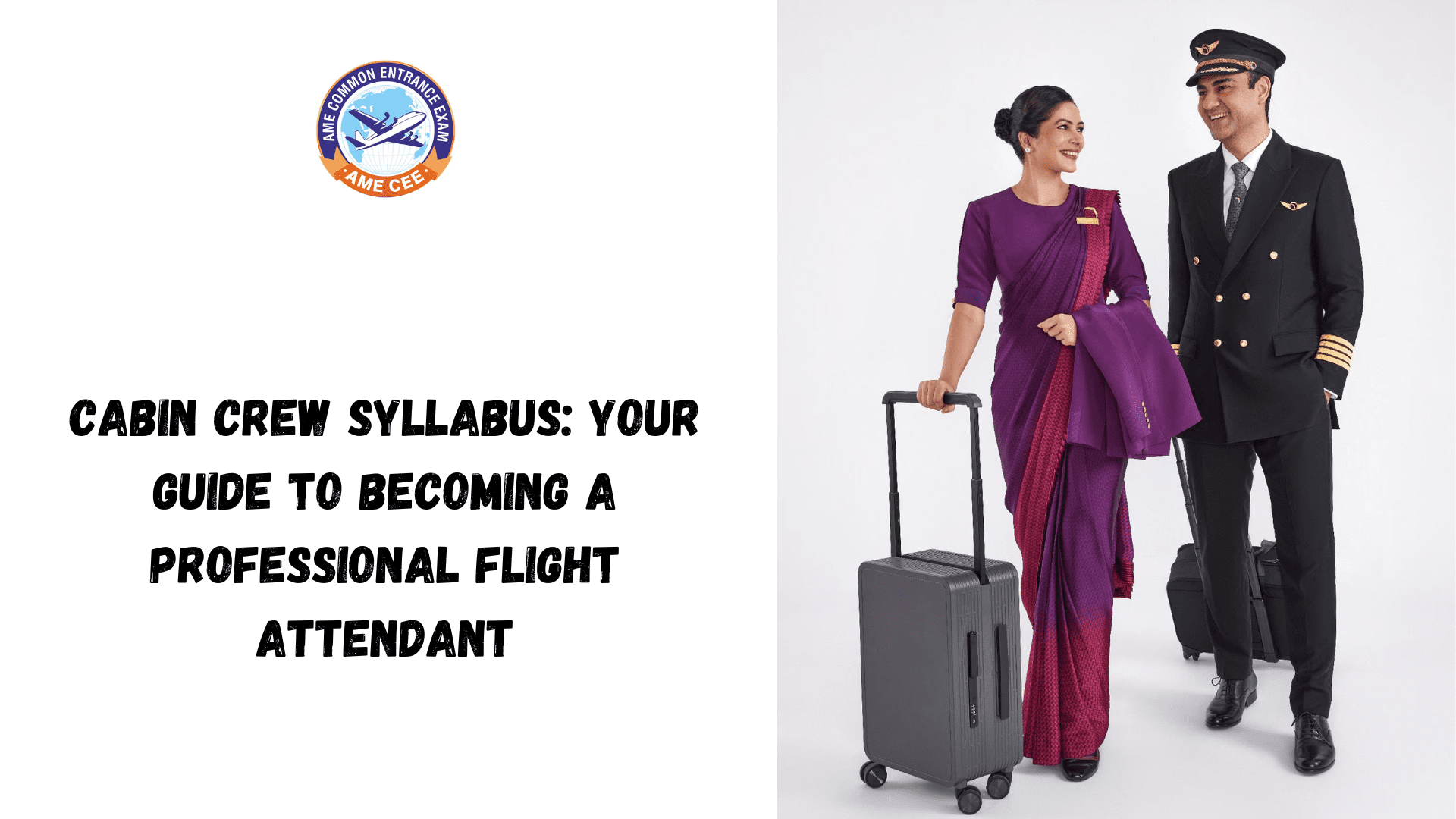Becoming a cabin crew member is an exciting career choice that offers opportunities to travel and meet new people. However, the journey to becoming a flight attendant involves intensive training. The cabin crew syllabus is the roadmap to becoming proficient in essential skills required for passenger safety, customer service, and overall professionalism on board. In this article, we will explore the main modules included in the cabin crew training syllabus and how to prepare for this rewarding profession.
1. Cabin Crew Training: What to Expect
The cabin crew syllabus is designed to equip aspiring flight attendants with the skills and knowledge necessary for a career in aviation. This training typically takes place over a few weeks or months, depending on the airline. It covers a variety of topics, ensuring that cabin crew members are well-prepared for the challenges of the job. Key components of the syllabus include:
- Flight Safety and Emergency Procedures: Learning how to handle emergency situations, evacuations, and first aid is a critical part of the training.
- Customer Service and Hospitality: Training in communication, conflict resolution, and delivering a high standard of service to passengers.
- Aircraft Systems and Equipment: Familiarization with aircraft layouts, cabin systems, and emergency equipment.
- Legal and Regulatory Aspects: Understanding aviation regulations, cabin crew responsibilities, and airline policies.
2. Core Modules in the Cabin Crew Syllabus
Each airline may have its own specific syllabus, but certain core modules are consistently found in cabin crew training programs:
2.1. Safety and Security
- Emergency Procedures: Evacuation techniques, use of safety equipment, and dealing with onboard threats.
- First Aid and CPR: Basic medical training to handle emergencies such as injuries, illnesses, or medical emergencies during flights.
2.2. Customer Service Skills
- Passenger Interaction: Professionalism in communication, managing difficult passengers, and ensuring passenger comfort.
- Service Excellence: How to serve meals, drinks, and handle passenger requests efficiently.
2.3. Communication Skills
Effective communication is vital for any cabin crew member. This module covers:
- Public Announcements (PAs): How to make clear, confident announcements to passengers.
- Handling Language Barriers: Managing communication with passengers who speak different languages.
2.4. Cultural Sensitivity and Diversity Training
With passengers from various backgrounds, understanding cultural differences and sensitivities is essential for providing respectful and inclusive service.
2.5. Aircraft Safety Equipment
Knowledge of all aircraft safety equipment and its proper use is paramount. This includes life vests, oxygen masks, fire extinguishers, and emergency exits.
3. Key Skills Developed in the Cabin Crew Syllabus
Alongside technical knowledge, the cabin crew syllabus develops several crucial soft skills. These include:
- Problem Solving: Dealing with unexpected situations, such as handling unruly passengers or cabin malfunctions.
- Teamwork: Working closely with colleagues in a confined space under high-pressure conditions.
- Time Management: Ensuring tasks are completed on time, particularly during busy flight services.
4. Assessment and Certification in Cabin Crew Training
To graduate from the cabin crew syllabus, candidates must pass both theoretical and practical exams. These assessments evaluate:
- Knowledge of safety protocols
- Ability to manage in-flight emergencies
- Customer service aptitude
After successful completion, candidates receive certification, making them eligible to work as a flight attendant for various airlines.
5. Tips for Excelling in Cabin Crew Training
To succeed in your cabin crew training syllabus, here are some helpful tips:
- Stay Physically Fit: The job requires endurance and the ability to stand for long periods.
- Prepare for Group Work: Cabin crew members must work well with others, especially in high-stress situations.
- Develop Emotional Resilience: Handling challenging passengers and emergencies requires mental toughness.
Conclusion
Becoming a cabin crew member requires a comprehensive understanding of both technical and interpersonal skills, all of which are taught in the cabin crew syllabus. Whether you aspire to work for an international airline or a regional carrier, this training prepares you for the challenges and rewards of the profession.
If you’re ready to take the first step toward becoming a flight attendant, research various airlines’ cabin crew training programs and start preparing for your exciting career in aviation today!
Frequently Asked Questions (FAQs) About the Cabin Crew Syllabus
1. How long is the cabin crew training syllabus?
The duration varies, but it typically lasts between 4 to 8 weeks.
2. Is the cabin crew syllabus different for each airline?
While many core modules are consistent across airlines, each airline has its own specific syllabus.
3. Do I need prior experience to join cabin crew training?
Most airlines require candidates to have basic qualifications and customer service experience, but prior aviation experience is not mandatory.


